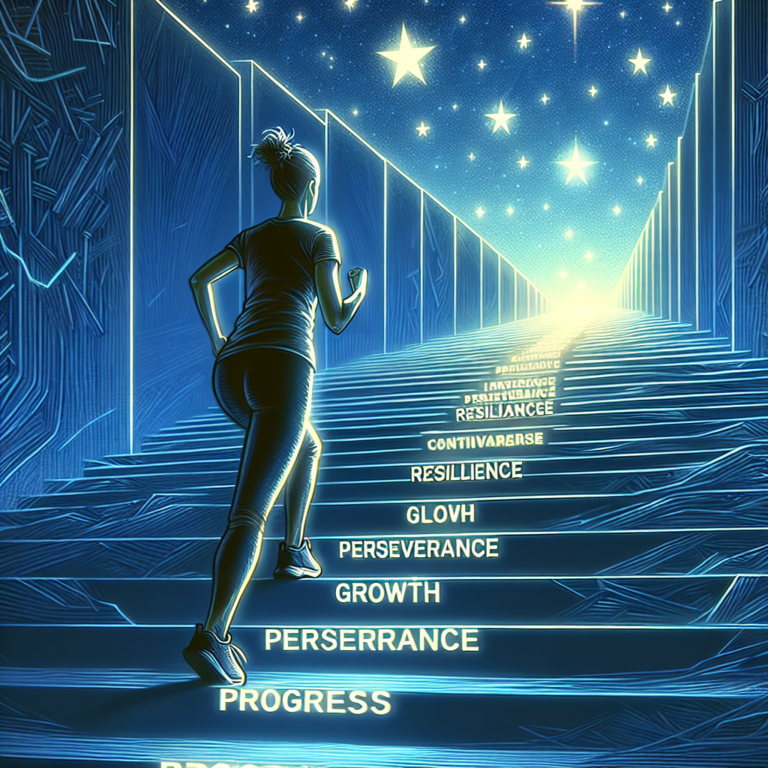Building resilience through self-improvement

Fortifying Your Mind: How Self-Improvement Cultivates Resilience
In a world that often feels overwhelming, the ability to navigate challenges with grace and strength has never been more important. The concept of resilience—our capacity to bounce back from adversity and maintain our well-being—is not just a trait; it’s a skill that, much like a muscle, can be developed and strengthened over time. Within the framework of resilience lies a powerful tool: self-improvement. This article delves into the enriching process of Fortifying Your Mind: How Self-Improvement Cultivates Resilience, offering practical insights, actionable strategies, and real-world applications that can transform your life.
Understanding Resilience and Its Importance
Building resilience through self-improvement
Resilience can be defined as the ability to adapt well in the face of adversity, trauma, tragedy, or significant sources of stress. Anyone can learn and develop these behaviours, thoughts, and actions. Resilience, unlike a fixed trait, is a dynamic quality that one can enhance through conscious effort.
Why Is Resilience Essential?
Resilience plays a crucial role in mental health and overall well-being. It enables individuals to:
- Overcome challenges and setbacks.
- Maintain a sense of purpose and direction in life.
- Develop emotional strength and empathy.
- Foster healthier relationships.
Everyday life frequently exposes us to stressors, and developing resilience is similar to preparing for the inevitable storms life may bring.
Building resilience through self-improvement
Why Self-Improvement Matters
Self-improvement is a lifelong journey that involves consciously seeking to enhance various aspects of one’s life, including knowledge, skills, health, and emotional well-being. When one focuses on self-improvement, they cultivate qualities like awareness, motivation, and goal-setting, all of which are vital components of resilience.
The Interplay Between Self-Improvement and Resilience
Fortifying Your Mind: How Self-Improvement Cultivates Resilience views self-improvement as a proactive approach to resilience development. Here are some ways this interplay manifests:
- Skill Development: Learning new skills increases confidence, making it easier to tackle challenges.
- Emotional Regulation: Self-awareness techniques, such as mindfulness, allow for better management of emotions in stressful situations.
- Positive Thinking: Cultivating a growth mindset encourages viewing failures as opportunities for learning rather than insurmountable obstacles.
Practical Strategies for Fortifying Your Mind
1. Set Clear Goals
Importance of Goal Setting
Setting clear goals provides direction, motivation, and a sense of accomplishment. Achieving small goals builds confidence, which is integral to resilience.
Case Study: John’s Journey
John, a mid-level manager, was struggling with team dynamics. He decided to set specific, measurable goals for improving communication. Over six months, he aimed to hold weekly team-building sessions. By achieving this goal, John not only improved his team’s performance but also felt more empowered and resilient in his role.
2. Practice Mindfulness and Meditation
The Power of Mindfulness
Studies have shown that mindfulness reduces stress, enhances self-awareness, and improves emotional regulation. Practicing mindfulness can help you remain grounded and composed in challenging situations.
Case Study: Sarah’s Transformation
Sarah, a college student, struggled with anxiety during exams. She began practicing mindfulness and meditation techniques daily. Over time, she noticed significant improvements in her focus and stress levels, equipping her with resilience against academic pressures.
3. Foster a Supportive Environment
Social Connections Matter
Strong relationships provide a buffer against stress and foster resilience. Surrounding yourself with supportive individuals encourages you to share experiences and gain different perspectives.
Case Study: The Book Club
A group of friends formed a book club that allowed them to share their love for reading and created a safe space to discuss personal challenges. This communal support helped them develop collective resilience against life’s ups and downs.
4. Embrace Failure as a Learning Opportunity
Redefining Failure
Instead of viewing failure as a setback, see it as an opportunity for growth. Each failure can provide valuable lessons that contribute to personal development.
Case Study: Maria’s Experience
Maria launched a startup that initially failed. Instead of giving up, she analyzed the reasons for her failure, learned from the errors, and pivoted her business model. This resilience allowed her to eventually succeed in her venture, demonstrating the impact of self-improvement through learning.
5. Engage in Continuous Learning
Lifelong Learning as a Resilience Tool
Engaging in continuous learning expands knowledge and helps one adapt to change. Whether through formal education or self-directed learning, being a lifelong learner cultivates confidence and resilience.
Case Study: Thomas’s Career Shift
Thomas lost his job in the tech industry. Instead of succumbing to despair, he enrolled in online courses to learn new programming languages. As a result, he became more competitive in the job market, showcasing how self-improvement can enhance resilience in the face of career setbacks.
Building Mental Fortitude: Techniques and Practices
1. Journaling
Benefits of Reflective Writing
Journaling helps individuals process their thoughts and emotions, essential for personal growth and resilience. Regular reflection can clarify priorities and enhance emotional regulation.
2. Physical Activity
The Connection Between Body and Mind
Exercise releases endorphins that improve mood and lower stress levels. A routine that includes physical activity strengthens both physical resilience and mental fortitude.
3. Gratitude and Positivity
Cultivating a Positive Outlook
Practicing gratitude shifts focus from what is lacking to what is available. This positive perspective fosters resilience by reducing feelings of inadequacy.
4. Seek Professional Help When Needed
The Role of Therapy and Coaching
Therapy and coaching can provide the guidance and tools necessary for developing resilience. Professionals can assist you in identifying blind spots and enhancing your self-improvement journey.
Conclusion
The journey to Fortifying Your Mind: How Self-Improvement Cultivates Resilience is lifelong and unique to each individual. You can significantly enhance your resilience by implementing practical strategies, embracing challenges, and fostering self-awareness. Remember, resilience is not about avoiding adversity but how you respond to it. Let the insights gained from this article inspire you to take actionable steps toward fortifying your mind and nurturing a resilient spirit.
FAQs
1. What is the first step to building resilience?
The first step in building resilience is to develop self-awareness. Recognise your triggers and how you respond to adversity. Understanding yourself is crucial to cultivating effective coping mechanisms.
2. How can I practice mindfulness effectively?
Begin with short, guided sessions focusing on your breath and observing your thoughts without judgment. Gradually increase the duration and incorporate mindfulness into daily activities.
3. Can physical exercise really improve mental resilience?
Yes, physical exercise boosts endorphin production, reduces stress, and enhances mood, all of which contribute to building mental resilience.
4. Is it necessary to seek help from a professional?
While many self-help strategies can be beneficial, seeking help from a mental health professional can provide tailored support and guidance, particularly in challenging situations.
5. How can I measure my resilience?
Reflect on your responses to past challenges. Consider how you coped, what you learnt, and how you can apply those lessons moving forward. Journaling can be a helpful tool for this reflection.
By focusing on Fortifying Your Mind: How Self-Improvement Cultivates Resilience, you’re embarking on a transformative journey that not only enhances your well-being but also builds a strong foundation for facing life’s inevitable challenges.















